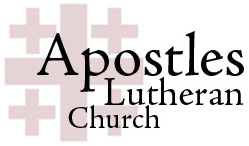Dear Friends,
Relationships take time. To grow them and then enjoy them takes time and effort on our part. Otherwise, relationships go away. Then at some point friends we know become friends we used to know. I realize this with when I try to keep up with the various birthdays, weddings, funerals and graduations for my extended family. None of them live close by and some of the 2nd generation of them I have only occasionally met. But the relationships are important to me, so I put in the effort.
The way we encounter God is mainly a relationship. He knows us, we know Him. We talk (prayer) and listen (Bible reading and sermons) we do things together (worship and service projects) and grow closer with each other. The longer we know Him the more we trust and understand Him. Our relationship with God started with Him when he decided to find you and forgive you and give you faith and trust in him. Our relationship with God depends mainly on him, but just like any relationship, if we ignore it, it will go away.
One reason we meet together for worship is to take time and focus on Him and our relationship with him. He provides us his word and God the Holy Spirit comes to enlighten/encourage/give us life. God the Son, the one who became human, comes to us in the bread and the wine. He gives us his body and blood and has a person to person encounter with you in Holy Communion. Gaining information is a small part of why we come to worship but its not at all the main reason we come to worship. We meet other people who trust in Jesus. We are encouraged by them and we can encourage them as we all make our way through this life together.
Here at Apostles we regularly have three opportunities to meet with God and each other, two in English and one in Spanish. If you like to get up early and begin the day thanking and praising the God who has blessed you with everything you have (and much of what you want), you can come at 8:00 AM on Sundays to renew and reconnect with God. But that is not
how every one operates. You may need to catch up on your sleep on Sunday morning because of a heavy work schedule and then take a while to wake up and be fully functional. Perhaps it takes, one, two, maybe three cups of coffee to be fully awake and then breakfast to be fueled up. Then you can come worship the God who has blessed you with everything you have (and a lot of what you want) at 11:00 AM. There is plenty of time on Sunday morning to fit all of that in and worship too. If you prefer to worship in the Spanish language come at 9:30 AM.
I keep up with my extended family partly for selfish reasons. I like them. They bless my life and by and large are very interesting people. The relationships we have give strength, color and life to our lives. Especially our relationship with God. He gives us hope, joy, encouragement, forgiveness, and life both here in this world and eternal life with him in heaven. This is one relationship you do not want to neglect or ignore. You don’t want God to slide into that category of “someone I used to know”.
Peace,
Pastor Andrew
July 2024 Vol. 30 No. 7
Apostles Lutheran Church Visions
To Know Jesus and make Jesus Known
